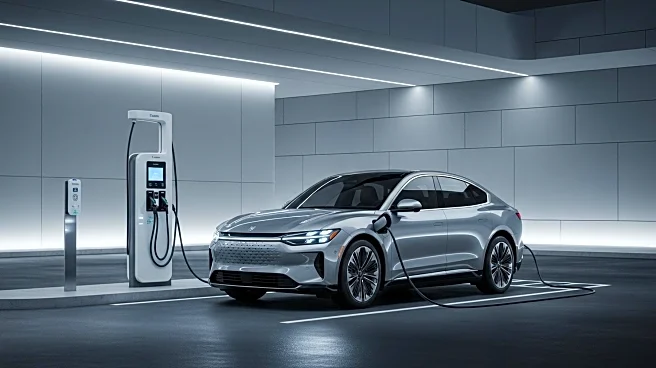What's Happening?
Electric vehicle registrations in the U.S. increased by 27% in July, driven by legacy brands such as Chevrolet, Honda, and Volkswagen. This growth comes as the federal EV tax credit nears its end, impacting market dynamics. Despite the overall increase in EV market share to 8.9%, major players like Tesla and Rivian experienced a decline in their market positions. The shift indicates a growing competition among automakers as they vie for a larger share of the EV market.
Why It's Important?
The rise in EV registrations among legacy brands highlights a significant shift in the automotive industry, as traditional automakers ramp up their electric vehicle offerings. This trend is crucial for the U.S. market, as it suggests a diversification of EV options available to consumers, potentially accelerating the transition to electric mobility. The competition among automakers is likely to drive innovation and improvements in EV technology, benefiting consumers with more choices and potentially lower prices.
What's Next?
As the federal EV tax credit phases out, automakers will need to focus on enhancing the value proposition of their electric vehicles to maintain consumer interest. This could lead to increased investment in research and development, as well as strategic partnerships to improve battery technology and reduce production costs. The evolving market dynamics may also prompt policy discussions on new incentives to support the growth of the EV industry.








